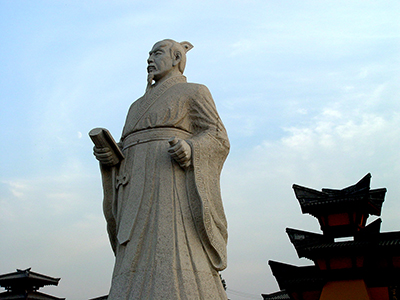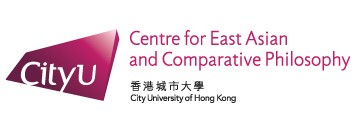Traditional Non-Confucian Political Philosophy in East Asia
Project
director: Dr. Eirik Lang Harris
Related Projects:
Traditional Non-Confucian Perspectives on Social and Political Organization and Order
Han Fei’s Political Philosophy

Guanzhong Memorial Hall in Linzi, Shandong
Although the bulk of the research in traditional East Asian political theory over the past century has focused on various strands of the Confucian tradition, this tradition by no means had a monopoly on political thought in East Asia. Rather, there was a wide range of political thinkers and views expressed, elaborated on, and argued for, including those who traditionally have been divided into the schools of Legalism, Daoism, and Mohism, as well as the more syncretic writings found in texts such as the Guanzi, Lushi Chunqiu, and Huainanzi.
Within these various thinkers we find a range of critiques of Confucian political philosophy, some devastating to certain aspects of this tradition, critiques that must be taken seriously by those assessing the contemporary value and future prospects of the Confucian political tradition. However, the value of these various traditions is not to be found solely in their negative role as critics. Rather, they have a variety of positive roles to play as well, providing a variety of visions not only of what was wrong in the political realm as it existed in their times and why Confucian political thought (and their various other competitors) could not remedy these problems, but also what was necessary to achieve stable and flourishing communities and states.
The Daoist tradition, for example, emphasized, among other things, the role that naturalness must play in any effective political theory. It also not only provided a critique of the insatiable desires for wealth and power of those in control but also a therapeutic method for attempting to alleviate these ‘unnatural’ desires. Further, while self-cultivation plays an important role in Daoist political thought, the form that this cultivation takes and its implication for the realm of politics is importantly different from what is seen in the Confucian tradition.
The Legalist tradition included a group of thinkers who based their political theories not on some abstract ideal but rather on the world as it actually was, attempting, in some cases in a fairly social scientific fashion, to create strong and stable states that did not require the vast cultivation of the populace that Confucian (and Daoist) political theory desired. Further, they developed and advocated not only an extensive legal system but also a highly complex bureaucracy, recognizing that the success of any political model rested not upon a single ruler but rather upon a stable system that could be implemented regardless of who was in charge.

Mozi, the Founder of Mohism
The Mohist tradition as well offers much that is worth study,not the least of which is its model of state consequentialism that had no place for favoritism within the government. Furthermore, while we may believe that the moral psychology underlying his vision of how to unify the wills of the population is too simplistic, his insights on the importance of such unification and the role of various levels of bureaucracy at developing this unification bear our continued consideration.
The aim of this project is to support research into a wide range of traditional non-Confucian political thinkers in East Asia, describing their views, evaluating the plausibility of these views, and exploring the implications of these views for contemporary East Asian political thought.

